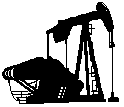
Back to Amsoil Lubricants general info page

Drain intervals for On-Highway rear axles filled with mineral oil: 100,000
miles.
Drain intervals for On-Highway rear axles filled with synthetic oil:
250,000 miles to 500,000 miles, depending upon equipment configuration.
Drain intervals for Off-Highway equipment generally double, for example
from
40,000 miles to 80,000 miles.
Rockwell Automotive, Maintenance Manual No. 5A, revised
2-97, p. 68-69.
--------------------
Construction Equipment magazine, May 1997, p.82-88, contains
an excellent article regarding extended drain intervals.
--------------------
With synthetic lubricants “... you have a base oil which is absolutely
consistent from batch to batch and which provides certain performance properties
... that cannot be matched by ...” mineral oil.
“To reduce equipment downtime, manufacturers and users are implementing
extended oil service intervals. So the fluid chemistry has to be
robust enough to tolerate contaminants, including water, during these extended-use
periods.”
Lubes-n-Greases magazine, Nov. 1997, p. 50.
--------------------
“Any high quality conventional oil meets the API's rating of SH.
The high quality synthetics ... breeze past these ratings by a factor of
four.”
“... - they're slipperier than petroleum oils.”
“Today's synthetic motor oils: improve lubrication at higher and lower
temperatures, reduce engine wear and tear, reach critical parts faster
at start up, upon shutdown leave a film on engine parts, improve engine
cleanliness, reduce sludge and deposits, reduce oil consumption, reduce
engine emissions.”
Amoco Corp., “Chemical Reactions” newsletter, 1997.
--------------------
“... maximum protection from friction ... improved fuel economy, reduced
oil consumption ...”
Texaco “Havoline Synthetic” counter-top hand-out.
--------------------
“... predictable and superior properties.”
“... unsurpassed high temperature stability, greater oxidation resistance,
unsurpassed shear stability ... lower oil consumption.”
“Synthetic motor oils provide far superior performance and protection
due to
their synthetic base stocks.”
“Conventional oils can't always protect your engine from wear.
... synthetic oils can protect your engine in ways conventional oils never
could.”
“Conventional oils don't fully prevent metal-to-metal contact.”
“... protection up to four times greater than conventional oils.”
Castrol “Syntec” counter-top hand-outs.
--------------------
“... dismantled the engine and compared ... parts ... from a brand
new ... engine.
There was no visible difference.”
“Decreases friction so effectively, you also get better fuel economy.”
Mobil “Mobil 1” counter-top hand-out.
--------------------
“The results are real.” “... horsepower boost ...” “Cooler
engine operating
temperatures.” “Not just for racing.”
Valvoline counter-top hand-out.
“All SS Camaros use Quaker State Synquest engine oil.”
Motor Age magazine, July 1997, p.78.
--------------------
“... a synthetic lube that's designed to last three years/250,000 miles
in ... rear axles and five years/250,000 miles in ... transmissions.”
Construction Equipment magazine, cover 2, Nov. 1997.
--------------------
“To ensure that vital equipment is properly lubricated and performing
at optimum levels, it's critical to use a premium oil from a company with
a proven industry record in bringing advanced lubricants to market.”
“While the API helps define industry standards, breakthroughs among
leading companies keep the benchmark steadily rising.”
“The cutting-edge discovery or creation of one company soon becomes
the standard.”
Hart's Lubricants World magazine, Nov. 1997.
--------------------
Fuel economy improvements - “Synthetic oils in transmissions and rear
axles can save ½ percent in summer driving and up to 2 percent during
the winter.”
Overdrive magazine, Nov. 1997, p.87.
--------------------
“Synthetic oils resist breakdown even more than premium oils, due in
large part to their stable base stocks. Synthetics also have superior
additive packages.”
Road King magazine, P.Abelson, Senior Field Ed.
--------------------
“Extended drain intervals sell trucks. Period. Moreover,
even if out customers can't use all the built-in drain interval capability
because of their specific application, its availability makes a clear statement
of manufacturing quality.”
G. Shank, Mack Truck Sr. Proj. Engr., Lubes’N’Greases
magazine, Dec. 1997, p.15.
--------------------
“A good synthetic oil will lose only about four percent of its weight
when tested at 400º for 6 hours; a conventional oil will boil away
as much as 30%. This temperature stability is important because the
upper cylinder area normally operates the 600º range, and the piston
rings around 400.”
“... synthetics offer much higher film strengths than do conventional
oils.” 3000 psi vs. around 500 psi.
“At elevated temperatures, conventional oils bead up, while synthetics
wet the
surface ...”
“Synthetic oils ... are slipperier than petroleum oils.”
“... remain more consistent than conventional oils ...”
Motor Trend magazine, May 1993, p. 92.
--------------------
“Meanwhile, auto makers demand ... improved oils for their new engine
designs.”
Hart's Lubricants World magazine, Jan. 1998, p. 2.
“... oil and filters can now be changed twice a year instead of four
times. ...the drain
interval ... has been increased 2,000 to 4,000 hours. ...oil
change intervals to 3,000
hours ... from 1,000 hours...”
Hart's Lubricants World magazine, Jan. 1998, p. 13.
“Advantages of Synthetics:
Easier cold starting
Increases horsepower
Quicker oil flow upon engine startup
Better high-temperature and high-shear properties
Quicker heat dissipation"
Valvoline press release, 1992.
--------------------
“In field tests in Mexico, heavy-duty vehicles were operated at high
loads, uphill and at high speeds. “We found that oil changes could
be greatly extended, not just to two or three times the normal range, but
to five to 10 times as long, using synthetics.”
Lubes’N’Greases magazine, Feb.1998, p. 28-29.
--------------------
“Motor oils that offer high-temperature deposit control and extended
drain intervals are of great importance to OEMs.”
Hart's Lubricants World magazine, Apr. 1998, p. 40.
--------------------
“Speaking of oil, use a good synthetic, which will continue to provide
lubrication at temperatures that will fry conventional oils.”
Kit Car magazine, Nov. 1998, p. 80.
--------------------
“Synthetic oils are specially engineered to address the requirements
of today’s engines. They, almost without exception, significantly
outperform petroleum based oils.”
Motorcycle Tour & Cruiser magazine, Aug. 1999, p.
84.
![]()
Change your thinking, not your oil.



![]()